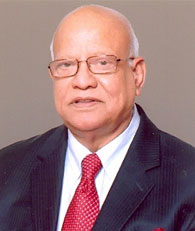Import Duties a Barrier to Improved Cookstove Adoption in Bangladesh
Despite the great market potential for cookstoves in Bangladesh, adoption of clean cooking solutions has been very slow. One critical impediment is the high import duty currently placed on improved cookstoves (ICS). Until recently there was no major local manufacturing for ICS in the country. Most people use traditional mud stoves or an improved version of it known as the “Bondhu Chula.” That may be surprising in 2015, given that the market potential for improved cookstoves is estimated at more than 29 million households.
A year ago the Alliance, in partnership with Catalyzing Clean Energy for Bangladesh (CCEB), convened a diverse, international group of stakeholders to answer the question: “What are the barriers to vibrant market development in Bangladesh for ICS?”
Participants, which included representatives from NGOs, the private sector, donor/development partners, manufacturers and associations from Bangladesh, the United States, India and South Africa, identified high import duties as a major hindrance to market development. The increased cost of the stoves is being passed along to the consumers, many of whom are unable to afford them. When cookstoves are out of most consumers’ price range, widespread adoption stalls.
At nearly 61%, Bangladesh has one of the highest import duties on cookstoves anywhere in the world. This is despite the absence of domestic competition that duties are usually put in place to protect. These tariffs have been a major barrier to the growth of the sector. Since the meeting, the Alliance and its partners, together with the Bangladesh Solar and Renewable Energy Association (BSREA) and the Sustainable Renewable Energy Development Authority (SREDA), have been advocating for more favorable tax policies for the ICS sector.
To get cookstoves into Bangladesh is a complicated process involving many ministries and bureaus. In the past, a few international manufacturers of cookstoves and local organizations have tried to bring stoves into the country, and they shared their frustrations with the Alliance. According to manufacturers, most had to wait for days and months–often using various personal connections–to facilitate the importation of stoves. Unsurprisingly, only about a few hundred stoves had been imported.
[pullquote]Given the large number of people who are affected daily by the harmful smoke from traditional cooking, and who will continue to suffer until they are able to access clean cooking solutions, it is extremely important to resolve this barrier to improved cookstove sales and adoption. While supporting local manufacturers through various grant programs, along with lobbying for favorable tax policy, the Alliance is also working with foreign manufacturers to consider setting up plants in Bangladesh, along with looking at other innovative ways to import stoves.
While that option is explored, the Alliance and SNV’s Bangladesh team initiated a new approach, involving both local and international manufacturers and importers, to both identify the necessary tax amendments in Bangladesh law and develop an ongoing advocacy initiative to reduce the existing duty on ICS by 50%. The coalition also seeks to simplify importing procedures and set up standard regulatory procedures for proper monitoring of imported ICS. To date, the bureaucratic process remains slow-moving.

The Alliance looks forward to seeing the progress on this issue in Bangladesh, and together with our partners, we will be applying the lessons learned to efforts to reduce barriers to ICS access around the world.
